In pictures: Bhutan goes organic
- Published
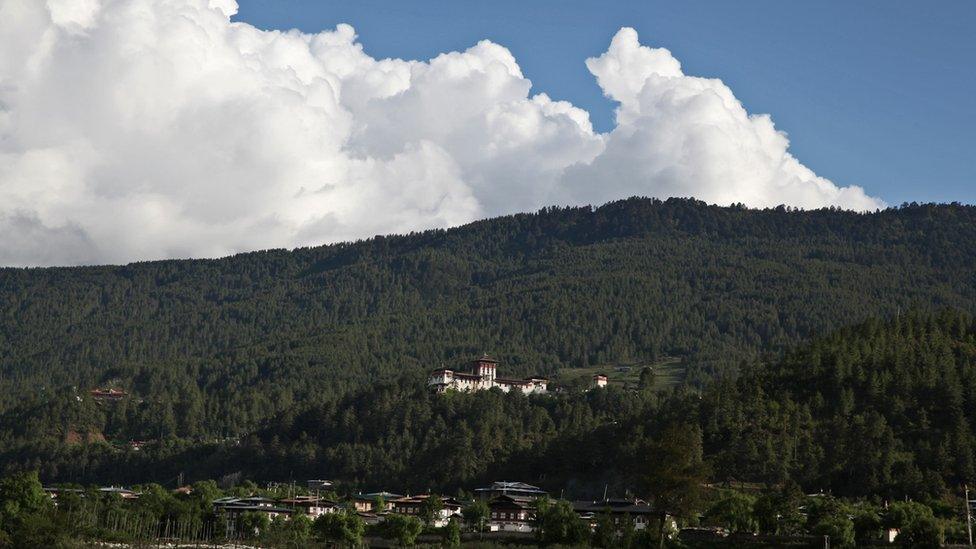
Major changes are taking place in the agricultural system of the picturesque Himalayan kingdom of Bhutan - sandwiched between India and China. (Words and pictures by Nazes Afroz.)
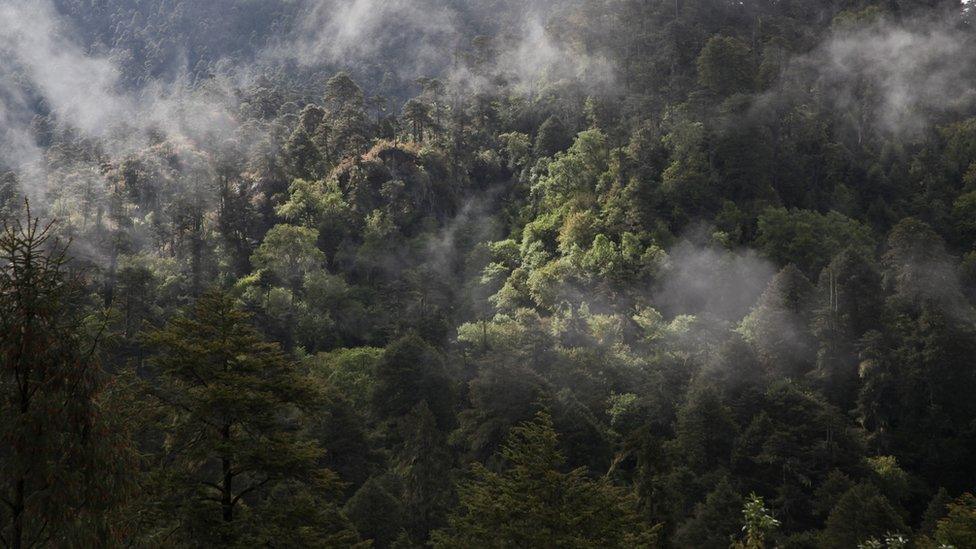
For centuries much of the mountainous terrain is either heavily wooded or used terrace farming.
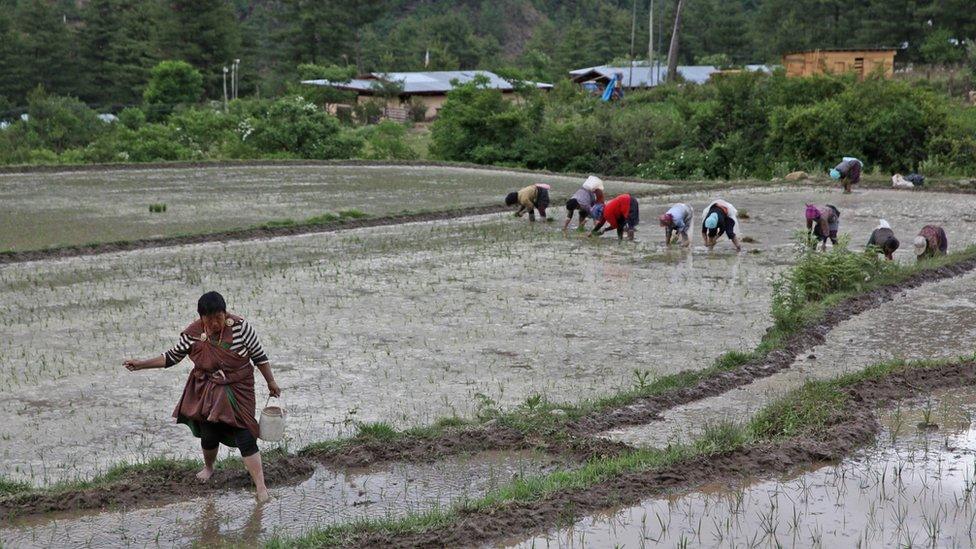
Agriculture is the mainstay of the economy of Bhutan. Chemical fertilisers and pesticides are heavily used. But the government has decided to switch to organic farming in the next two decades.
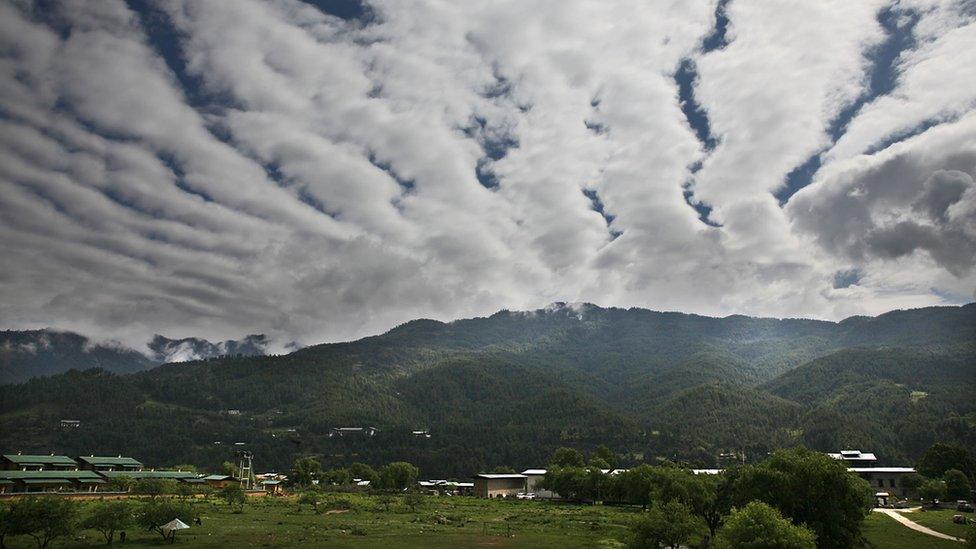
The pristine valley of Bumthang in central Bhutan is one area where organic farming is taking off.
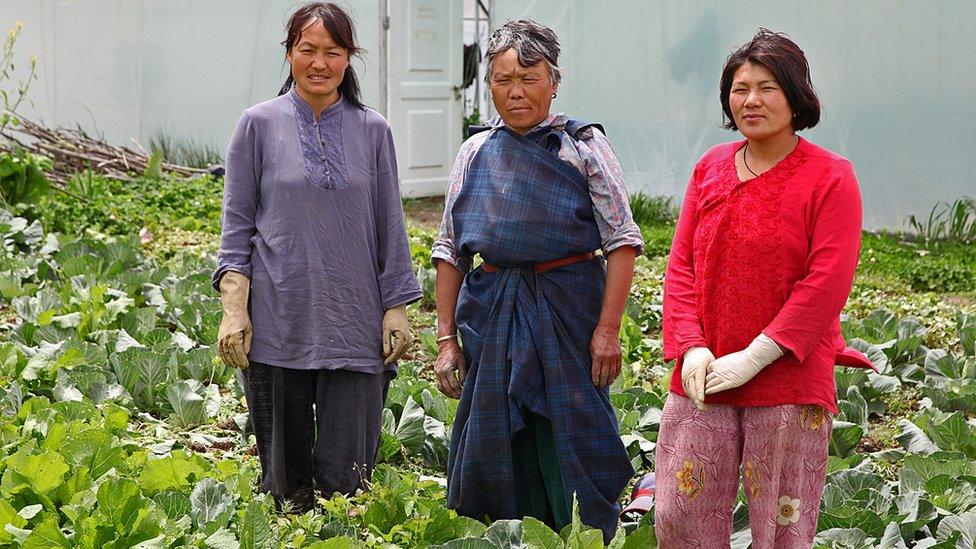
The government is helping farmers’ groups switch to organic techniques in Bumthang. These women (from left) Tshering Pelden, Tashi Dema and Tshering Lhaden form one of 20 such groups.
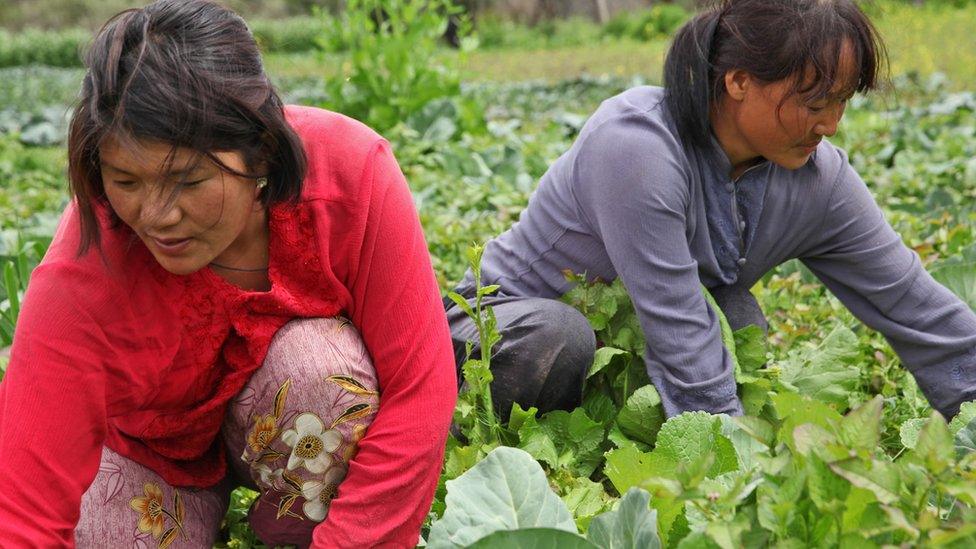
Ms Lhaden (left) and Ms Pelden harvesting organic spinach. These women put in all the physical labour needed on the land.
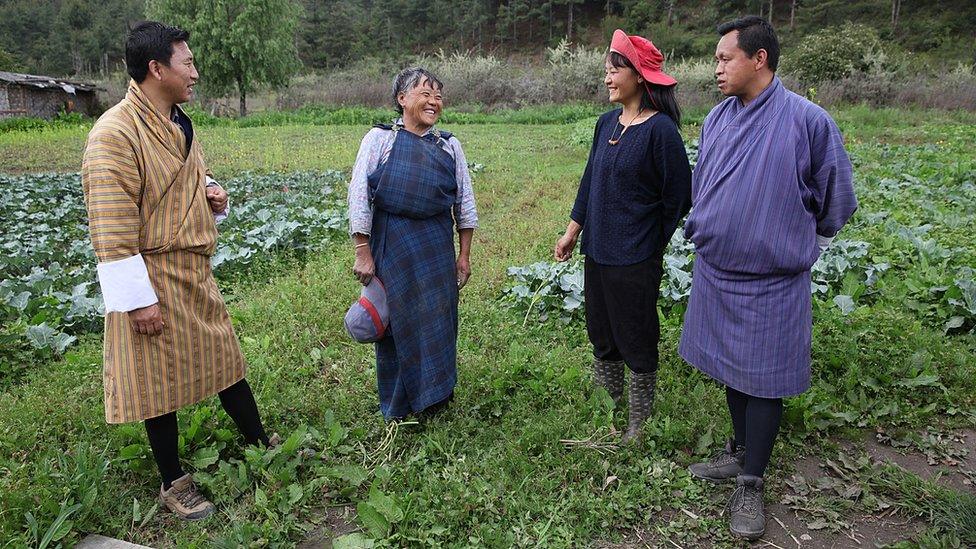
Representatives of the District Agriculture Office visit the farms regularly to advise the farmers. The government supplies organic seeds to the farmers and the farmers make the rest of the investment in such things as organic manure and organic pest repellent.
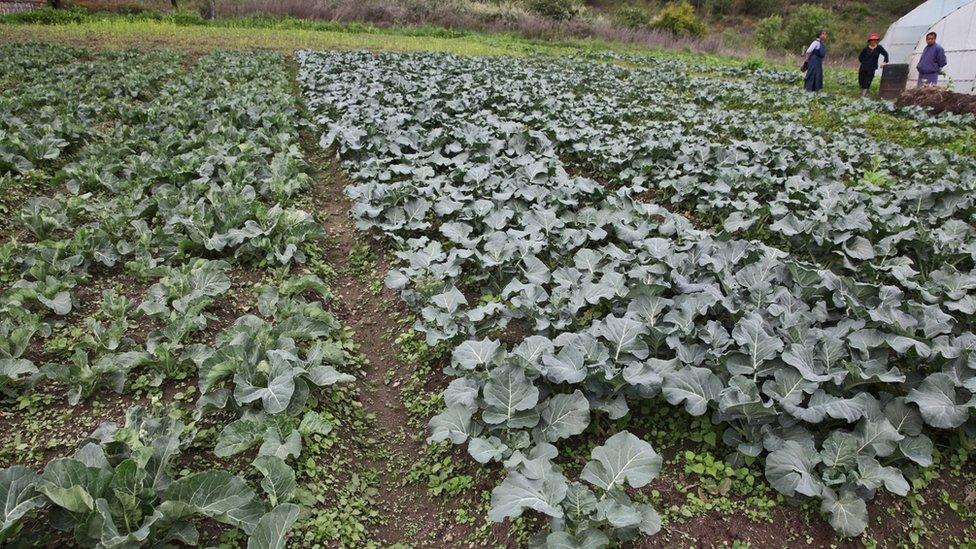
This group manages a mixed-crop cultivation of 18 vegetables and fruit.
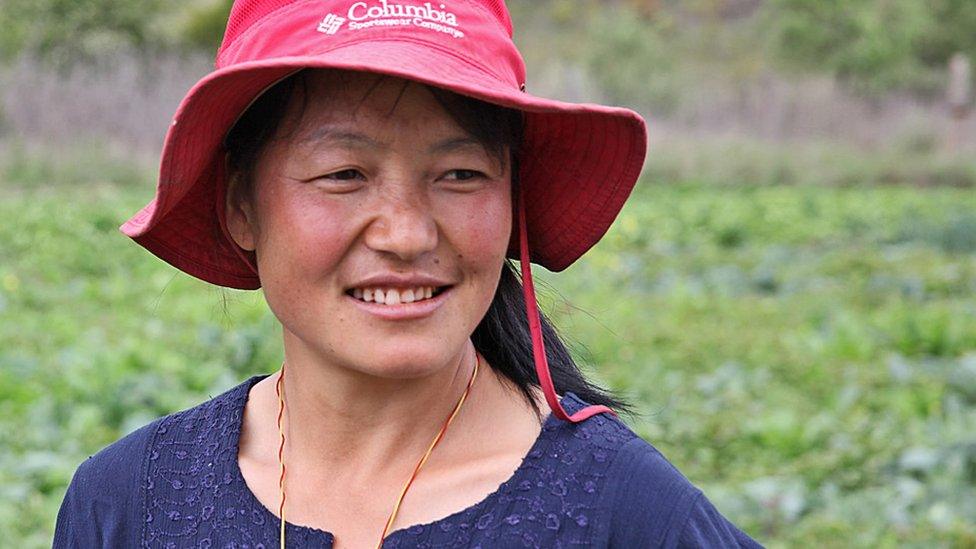
Ms Pelden is the group leader. At the end of every year the group divides the income into three parts. One is kept as reserve; one is used as investment for the following year; and the last part is shared equally by the three members as their own income.
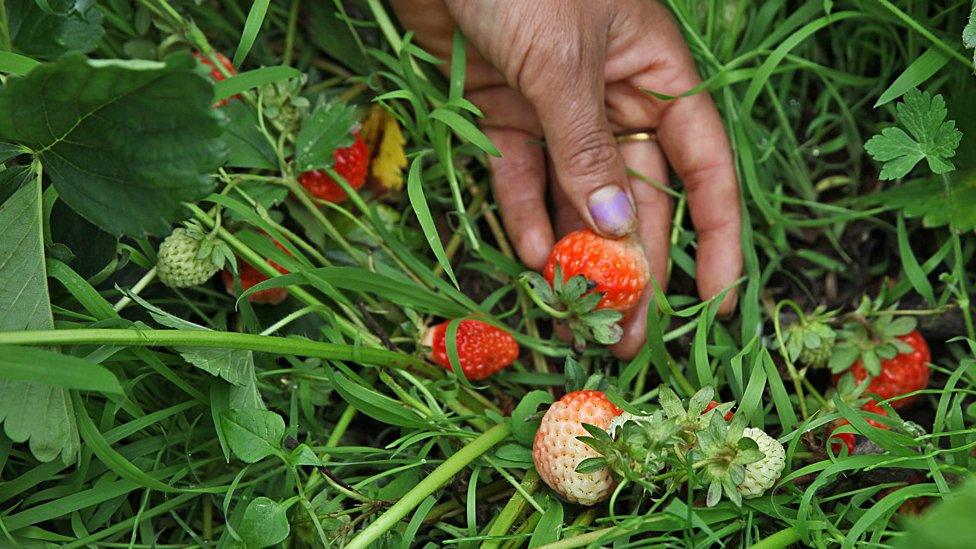
The climate and altitude of Bumthang is ideal for the production of excellent quality strawberries.
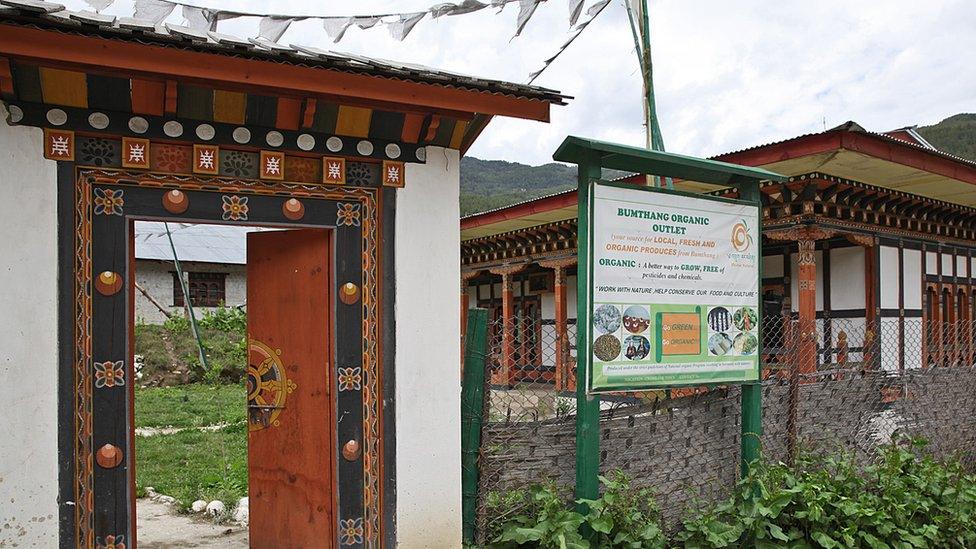
With the assistance of the government, the organic producers have built a marketing outlet in Bumthang where they sell all their products.